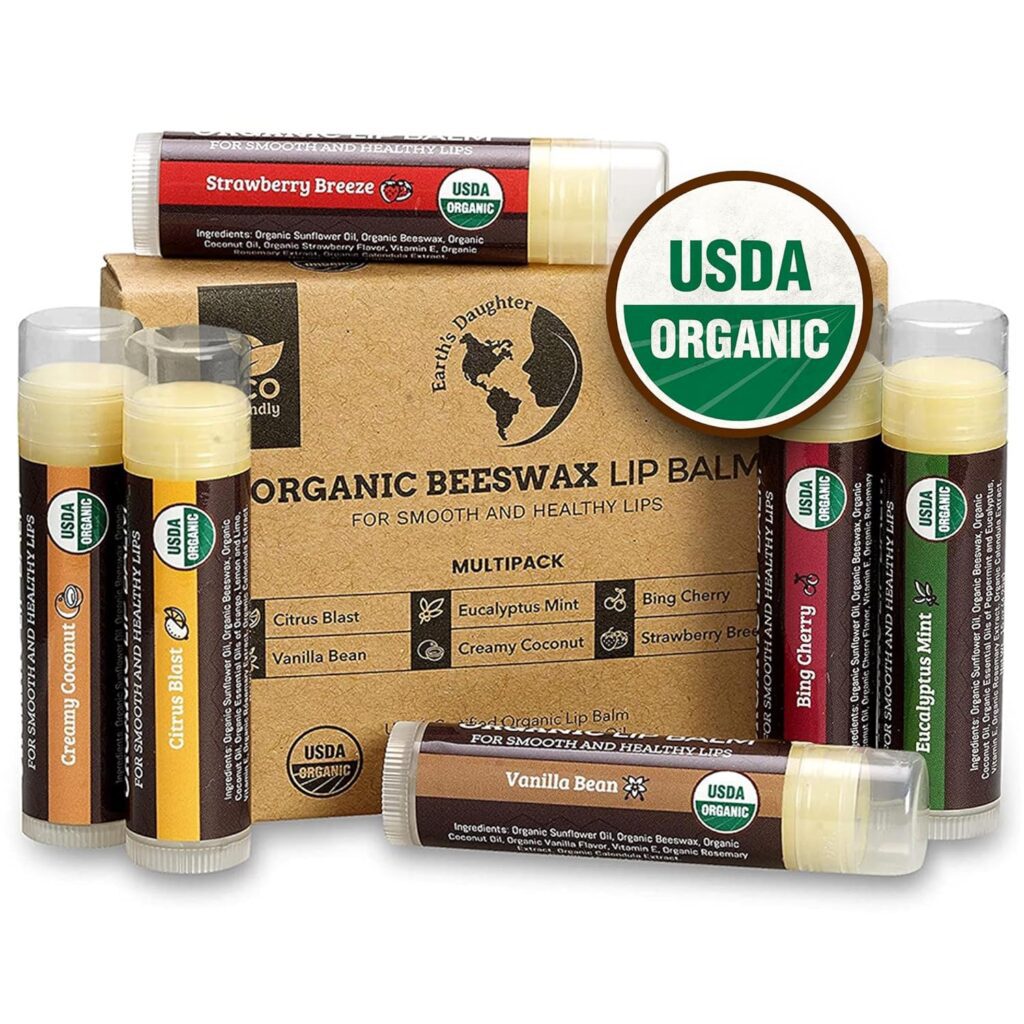Chapped lips are a common issue that many people face, especially in harsh weather conditions.
Understanding the causes of chapped lips can help you prevent and treat this uncomfortable condition.
In this post, we are going to explore five effective ways to ease chapped lips, starting with what causes chapped lips.
Let’s dive in!
What Causes Chapped Lips?
Chapped lips can result from various factors, including:
- Weather Conditions: Cold, windy, or dry weather can strip moisture from your lips.
- Dehydration: Not drinking enough water can lead to overall dryness, including on the lips.
- Lip Licking: Frequently licking your lips can create a cycle of dryness, as saliva evaporates quickly.
- Allergens or Irritants: Certain lip products, foods, and environmental factors can irritate the sensitive skin on your lips.
- Health Issues: Conditions like eczema or vitamin deficiencies can also contribute to chapped lips.
5 Ways to Ease Chapped Lips
1. Use An Organic Lip Balm
Using organic lip balm is one of the best ways to soothe and protect chapped lips.
Look for balms made with natural ingredients like beeswax, shea butter, and coconut oil, which provide hydration and form a protective barrier against the elements.
Avoid products with artificial fragrances or chemicals that may irritate sensitive skin.
Out of all of the organic lip balms I’ve tried, Earth’s Daughter Organic Lip Balm is my favorite.
Earth’s Daughter Lip Balm is an excellent choice for combating chapped lips, thanks to its nourishing and hydrating formula.
Infused with organic ingredients like beeswax, coconut oil, and vitamin E, it effectively repairs dry, cracked lips while providing a delightful array of fruit flavors such as Vanilla Bean and Creamy Coconut.
Safe for the whole family, this lip balm is free from harmful chemicals and fillers, ensuring a natural and soothing experience.
Simply follow the directions on the back and you’re good to go!
2. Stay Hydrated
Keeping your body well-hydrated is essential for maintaining moisture in your lips.
Aim to drink at least 8 glasses of water a day.
Adding hydrating foods like fruits and vegetables can also help improve your overall moisture levels.
3. Exfoliate Gently
Gently exfoliating your lips can help remove dead skin cells and promote smoother lips.
You can create a simple scrub using sugar and honey or use a soft toothbrush to lightly buff away dry patches.
Just be careful not to overdo it, as this can lead to irritation.
4. Use a Humidifier
Dry indoor air, especially during winter, can exacerbate chapped lips.
Using a humidifier helps maintain moisture levels in the air, which can keep your lips hydrated.
This is especially beneficial while you sleep.
5. Protect Your Lips
When going outside, particularly in extreme weather conditions, protect your lips by applying a layer of organic lip balm.
Wearing a scarf can also help shield your lips from wind and cold, reducing the risk of chapping.
Ease Chapped Lips
Chapped lips can be uncomfortable, but with the right care and prevention strategies, you can keep your lips healthy and hydrated.
By using organic lip balm, staying hydrated, gently exfoliating, using a humidifier, and protecting your lips, you can effectively combat dryness and enjoy smoother, softer lips.
Pay attention to any underlying causes, and consult a healthcare professional if dryness persists.
Thank you for reading!
Affiliate Disclosure
Some of the links on this site are affiliate links. This means that if you click on the link and purchase the item, we may receive an affiliate commission at no extra cost to you. I only recommend products or services that I believe will add value to my readers, however some (not all) do pay us to be on this blog. Your support and theirs helps keep this blog running, and I genuinely appreciate it.
Medical Disclaimer
The information provided on this website is for educational purposes only and is not intended as medical advice. This blog or the writer is not a licensed healthcare professional, and the content should not be used as a substitute for professional medical diagnosis, treatment, or advice. Always consult with your physician or other qualified healthcare provider before starting any new treatment or making any changes to your healthcare routine.
